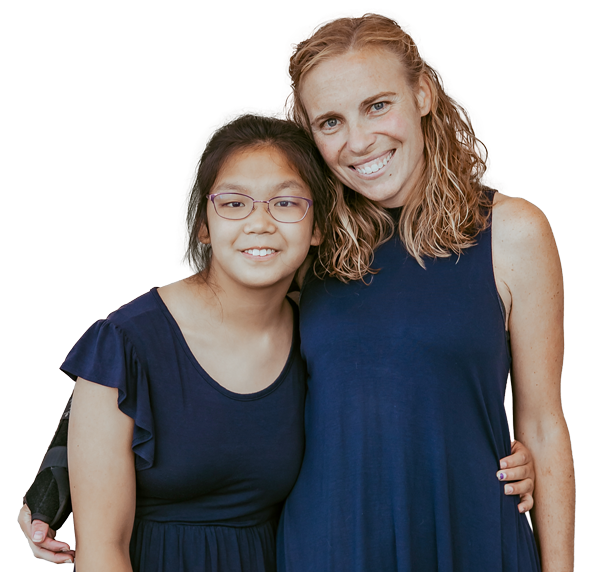Release Details
Living with PKU, United States

PTC Therapeutics and University of Pennsylvania Collaborate on Orphan Disease Research
The first collaborative initiative will focus on Translarna™ (ataluren) for the lysosomal storage disease Mucopolysaccharidosis I (MPS I) due to a nonsense mutation. MPS I is an inherited lysosomal storage disorder caused by a deficiency of alpha-L-iduronidase, a lysosomal enzyme involved in the breakdown of complex carbohydrates known as glycosaminoglycans (GAGs). As a consequence of the disease, cells are unable to excrete carbohydrate residues that accumulate in the lysosomes. This cellular debris buildup disrupts the cell's normal function, resulting in clinical manifestations of the disease. There is an urgent need for the development of new treatments for MPS I as currently available therapeutics do not adequately address the bone, CNS or cardiac symptoms of the disease.
"We are excited to establish this partnership with
"We are honored to be working with the Orphan Disease Center," stated
PTC is initiating a multi-center, Phase 2, proof-of-concept study which will evaluate the safety and pharmacokinetics of Translarna in patients with nonsense mutation MPS I. Pharmacodynamic activity will also be explored by an assessment of GAG levels in cerebrospinal fluid, urine and blood. Initial data from this study is expected by the end of 2015.
About
PTC is a global biopharmaceutical company focused on the discovery, development and commercialization of orally administered, proprietary small molecule drugs targeting an area of RNA biology we refer to as post-transcriptional control. Post-transcriptional control processes are the regulatory events that occur in cells during and after a messenger RNA is copied from DNA through the transcription process. PTC has received conditional marketing authorization in the European Economic Area for Translarna for the treatment of nonsense mutation Duchenne muscular dystrophy in ambulatory patients aged five years and older. PTC's internally discovered pipeline addresses multiple therapeutic areas, including rare disorders, oncology and infectious diseases. PTC has discovered all of its compounds
currently under development using its proprietary technologies. PTC plans to continue to develop these compounds both on its own and through selective collaboration arrangements with leading pharmaceutical and biotechnology companies. For more information on the company, please visit our website www.ptcbio.com.
For More Information:
Investors:
+1 (908) 912-9327
ehill@ptcbio.com
Media:
+1 (908) 912-9167
jbaj@ptcbio.com
Patients, Patients' Families, Investigators and Patient Organizations:
+1 (908) 912-9256 or (866) 282-5873
patientinfo@ptcbio.com
Forward Looking Statements:
This press release contains forward-looking statements within the meaning of The Private Securities Litigation Reform Act of 1995. All statements, other than those of historical fact, contained in this release are forward-looking statements, including statements regarding the future expectations, plans and prospects for PTC; the timing and conduct of PTC's clinical trials or studies of Translarna™ (ataluren) for the treatment of Duchenne muscular dystrophy (DMD), cystic fibrosis and MPS I, caused by nonsense mutations, including statements regarding the timing of initiation, enrollment and completion of the trials and the period during which the results of the trials will become available; the rate and degree of market acceptance and clinical utility of Translarna; PTC's strategy, future operations, future financial position, future revenues or projected costs; and objectives of management. Other forward-looking statements may be identified by the words "plan," "guidance," "anticipate," "believe," "estimate," "expect," "intend," "may," "predict," "project," "target," "potential," "will," "would," "could," "should," "continue," and similar expressions.
PTC's actual results, performance or achievements could differ materially from those expressed or implied by forward-looking statements it makes as a result of a variety of risks and uncertainties, including those related to the initiation, conduct and availability of data from clinical trials; expectations for regulatory approvals; PTC's scientific approach and general development progress; the eligible patient base and commercial potential of Translarna; PTC's ability to maintain the marketing authorization license of Translarna for the treatment of nonsense mutation DMD in the European Economic Area, which is conditioned upon completion of its Phase 3 confirmatory trial in nonsense mutation DMD and subject to annual review and renewal by the EMA following its reassessment of the risk-benefit balance of the authorization; and the factors discussed in the "Risk Factors" section of
PTC's Annual Report on Form 10-K as well as any updates to these risk factors filed from time to time in PTC's other filings with the
To view the original version on PR Newswire, visit:http://www.prnewswire.com/news-releases/ptc-therapeutics-and-university-of-pennsylvania-collaborate-on-orphan-disease-research-300052992.html
SOURCE
News Provided by Acquire Media